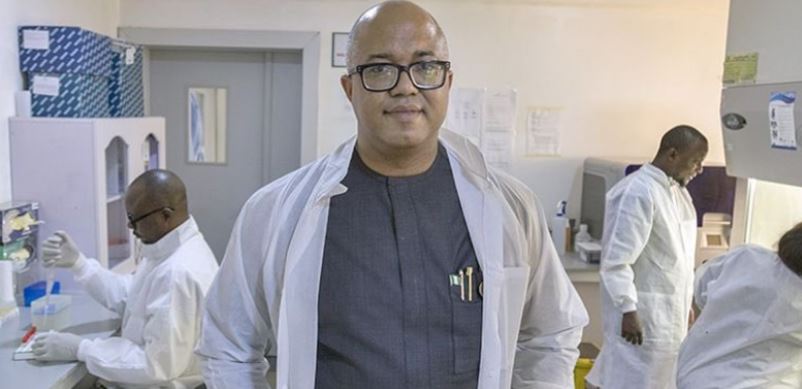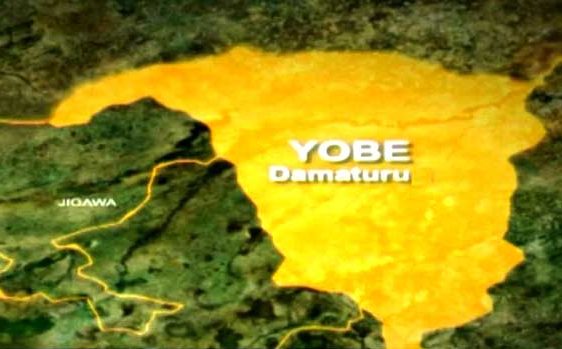A lockdown of the country again is likely.
This follows Monday’s gross disobedience of the protocols as Nigerians got some relief after weeks of restrictions.
It was the first day after the easing of the shutdown to contain the spread of coronavirus in Abuja, Lagos and Ogun states.
Before the four-week stay-at-home imposed by President Muhammadu Buhari, Lagos and Abuja had been under some forms of restriction for at least one week.
Presidential Task Force (PTF) on COVID-19 is not pleased that there was a breach of social distancing with overcrowding in public places, interstate movement and shunning of face masks.
“Today, we might forgive a little bit because it was the first day. However, we will have infections because of what happened today (yesterday), no doubt about that.
“But what is more important is how we can learn from the mistakes of today (yesterday) into tomorrow and into next tomorrow, so that by Friday, hopefully they will have normalised some of these things.
“The challenge for us as a society is how we now organise ourselves to mitigate this risk to limit transmission from each other. We don’t want an explosion of new infections.
“But if we do have that explosion, there will be almost no choice left for the leadership of the country than to ask all of us to go back into our homes.
“For the benefits of having a few hours a day of coming out and reopening parts of the economy, there is a price to pay and that price is that we organise ourselves to do this strictly,” Director-General of the Nigeria Centre for Disease Control, Chikwe Ihekweazu, said. He spoke during the daily briefing of the task force in Abuja yesterday.
Dr. Ihekweazu said although the PTF expected some lapses in compliance with safety precautions by some people, corporate organisations, especially banks, flouted the NCDC guidelines for infection prevention and control.
He said the panel noted that only a few bank branches opened a development that led to the high number of customers seen in them.
The NCDC boss explained that the Federal Government expected a few extra infections as a result of the lapses on Monday.
“Initial reports are not too pleasing across the country. When we say take responsibility this time, we really needed to address corporate Nigeria. One of the biggest groups that we have allowed to restart business today were banks,” he said, adding: “When you limit the number of branches that open, everybody goes to the one branch that is open; that becomes counter-productive.
“We can produce all the guidelines in the world, but if organisations fail to support the implementation of these measures and focus on a risk-based approach, then our efforts might amount to little or nothing.
National Coordinator of the task force, Dr. Aliyu Sani, also clarified that “the easing of the lockdown is in no way a license to relax our self-protection measures.
”It is also not …to return to business as usual. The danger of acquiring COVID -19 is even more clear and present now that we are all slowly going back to work.”
Minister of Health, Dr. Osagie Ehanire, enjoined Nigerians to be more cautious” countries who eased or lifted restrictions, suffered an increase in new cases.”
”We need to protect, not only ourselves, but each other and our loved ones. We need to make sacrifices today for a better tomorrow,” he advised.
PTF chairman, Boss Mustapha lamented that crowds at the banks milled around without giving a hoot to possible spread of COVID-19.
He charged banks to help in solving the crowd problem by ensuring that their online platforms were set right and Automated Teller Machines (ATMs) loaded with cash.
Mustapha also noted that state governments and security agencies had been advised to ensure strict compliance by corporate organisations to the regulations for the current phase of national response.
He appealed to Nigerians to continue being responsible citizens, adding that easing the lockdown did not mean danger had already been averted.
He said, “The PTF has been monitoring the level of compliance with some of the measures and early observations showed lack of compliance with social distancing and wearing of masks.
“We note particularly the chaotic scenes around the banks and other financial institutions. We must reiterate that the danger of infection is not over and that individual actions will contribute to the success or failure of our measures.
“We urge citizens to minimize the risk of getting infected while in the banks. We similarly urge the banks to ensure that their ATMs and online banking systems are in good order and stocked regularly to avoid convergence of customers in their premises.
“The PTF fully understands the desire of Nigerians to come out to continue their lives after five weeks of lockdown.
“State governments and security agencies have however been advised to enforce the measures rigidly and violators will be prosecuted.”
On inter-state travels, Mustapha said the PTF was not pleased at the rate of movements across the states, including recent transfer of Almajiris.
He noted that with the new phase of the national response, such movements would be regarded as violation of regulations.
“The PTF has also received reports on the level of compliance with the nationwide ban on inter-state movements. The objective of the ban is to slow down the spread of virus across state boundaries.
“The determination of government to enforce this policy is not in doubt and as we progress, we believe that proper alignment with the directives of Mr. President would be pursued.
“There has been very noticeable relocation of Almajiris from one state to another, up until yesterday (Sunday). With the ban on interstate movement, the continuation of this exercise will not be in alignment with the guidelines issued.
“The PTF shall engage the respective state governments on how to achieve their objectives.”
The task force also lamented that some states involved in ‘deportation’ Almajiris were helping in the breach of the ban on interstate movement.






